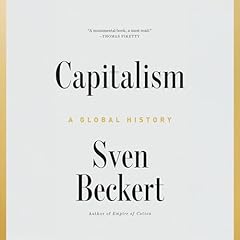
The Origin of Capitalism
A Longer View
No se pudo agregar al carrito
Add to Cart failed.
Error al Agregar a Lista de Deseos.
Error al eliminar de la lista de deseos.
Error al añadir a tu biblioteca
Error al seguir el podcast
Error al dejar de seguir el podcast
Prueba gratis de 30 días de Audible Standard
Compra ahora por $18.18
-
Narrado por:
-
Jo Anna Perrin
How did the dynamic economic system we know as capitalism develop among the peasants and lords of feudal Europe?
In The Origin of Capitalism, a now-classic work of history, Ellen Meiksins Wood offers a clear and accessible introduction to the theories and debates concerning the birth of capitalism, imperialism, and the modern nation state. Capitalism is not a natural and inevitable consequence of human nature, nor simply an extension of age-old practices of trade and commerce. Rather, it is a late and localized product of very specific historical conditions, which required great transformations in social relations and in the relationship between humans and nature.
©1999 Monthly Review Press; 2002, 2017 by Ellen Meiksins Wood (P)2021 TantorLos oyentes también disfrutaron:




















Las personas que vieron esto también vieron:
















Exquisite
Se ha producido un error. Vuelve a intentarlo dentro de unos minutos.
I did have to rework some of the chapters to find what I was looking for.
AND I DO RECOMMEND THIS BOOK.
Interesting Read
Se ha producido un error. Vuelve a intentarlo dentro de unos minutos.
Useful information? Yes.
Se ha producido un error. Vuelve a intentarlo dentro de unos minutos.
Excellent analysis, very irritating narrator
Se ha producido un error. Vuelve a intentarlo dentro de unos minutos.
Highly informative--not one for the uninitiated, however
Se ha producido un error. Vuelve a intentarlo dentro de unos minutos.


